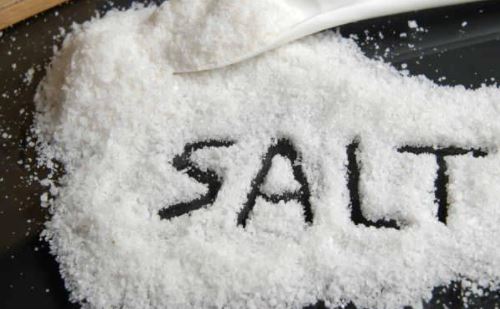With a growing inclination towards health and fitness, people are gradually moving towards fad diets that help in achieving fitness goals faster.
One such diet is a
low-salt diet, which helps in faster loss of water weight, but is it sustainable in the long run?
Well, here’s all you need to know about this diet and why you should avoid going on a
low-salt diet.
Why salt?
Salt is an essential mineral, which is needed for proper functioning of the body. While moderate intake of salt is important, excessive salt intake can lead to health issues like high blood pressure. Though moderation is key, completely cutting out or drastically reducing salt from your diet may not always be the best choice for your health. Here are some reasons to reconsider before going on a
low-salt diet:
Sodium is essential for body functions
Sodium plays a vital role in many bodily functions, including maintaining fluid balance, transmitting nerve impulses, and regulating muscle contractions. A certain level of salt is necessary for your body to function effectively. Sodium helps maintain blood pressure, and without it, you may experience dehydration, muscle cramps, and fatigue. A very
low-salt diet can disrupt these essential processes.
1. Hyponatremia
When you consume too little sodium, your body can develop hyponatremia, a condition where sodium levels in the blood become dangerously low. Symptoms of hyponatremia include nausea, headaches, dizziness, confusion, and in severe cases, seizures and coma. This condition can be life-threatening and often results from extreme salt restriction combined with high fluid intake.
2. Energy and mood
Sodium is involved in maintaining proper nerve function and fluid balance in the body. When your sodium levels drop too low, you may feel unusually tired, weak, or moody. Some people report experiencing irritability, difficulty concentrating, and brain fog when their salt intake is too low. These mood and energy disruptions can affect your overall quality of life and well-being.
3. Impair muscle function
Sodium is necessary for proper muscle contraction and function. When sodium levels are too low, muscles may not contract properly, leading to weakness, cramps, and even spasms. This is especially important for athletes or those who engage in physical activity regularly. Muscle fatigue and cramping can hinder your performance and cause unnecessary discomfort.
4. Bone health
Salt plays a role in calcium retention in the body. When you reduce sodium intake drastically, your kidneys excrete more calcium in urine. Over time, this can lead to a loss of bone density, increasing the risk of osteoporosis. A
low-salt diet can therefore contribute to weaker bones, particularly in older adults or those at risk for bone-related issues.
5. Increased insulin resistance
Some studies suggest that a very
low-salt diet could potentially increase insulin resistance, making it harder for the body to regulate blood sugar levels. Insulin resistance is a key factor in the development of type 2 diabetes, and low sodium could exacerbate the issue. Balancing your salt intake with other nutrients is essential for maintaining healthy blood sugar levels.
6. Electrolyte balance
Electrolytes, such as sodium, potassium, and magnesium, are crucial for maintaining hydration and proper cellular function. Too little sodium can upset the balance of electrolytes in the body, leading to symptoms such as headaches, fatigue, dizziness, and irregular heartbeats. A balanced intake of sodium helps keep these electrolytes in check, supporting overall cellular health.














